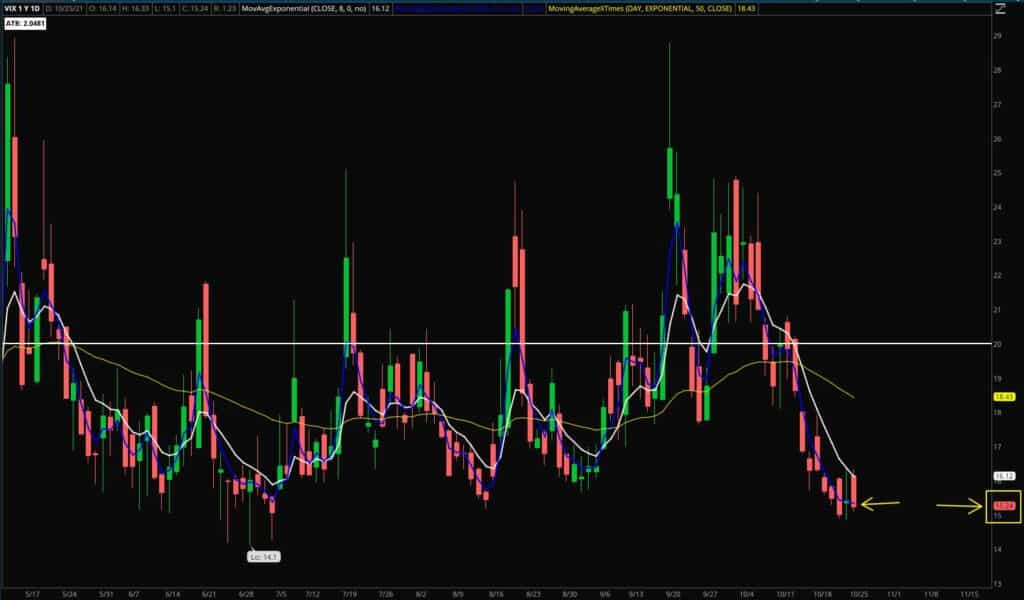What is Contango in the VIX?
If you are new to trading or have been trading stock but are interested in options, you can find more information at The Technical Traders – Options Trading Signals Service. The head option’s trading specialist Neil Szczepanski who has been trading options for almost 20 years sends out real live trade alerts on real trades with real money. Come check it out here: TheTechnicalTraders.com
I have been trading options and coaching / mentoring other new options traders for years. I have seen new traders who were lucky and ended up with some winning trades and others who were so frustrated and on the verge of giving up. I have seen it all. One of the things I have noticed is that very few people understand the VIX or AKA the fear gauge to the markets.
Sign up for my free trading newsletter so you don’t miss the next opportunity!
Many know that it is a measure of fear but they don’t really understand what it is and how it is constructed. If you are an options trader, I would argue it is very important that you as a trader understand what the VIX is and how it works.
According to Investopedia, it is defined as:
- The Cboe Volatility Index, or VIX, is a real-time market index representing the market’s expectations for volatility over the coming 30 days.
- Investors use the VIX to measure the level of risk, fear, or stress in the market when making investment decisions.
- Traders can also trade the VIX using a variety of options and exchange-traded products, or use VIX values to price derivatives.
Ok, so we have seen the dictionary definition but how do they come up with the price? VIX index values are calculated using the Cboe-traded standard SPX options (that expire on the third Friday of each month) and using the weekly SPX options (that expire on all other Fridays). Only those SPX options are considered whose expiry period lies within 23 days and 37 days.
So what about VIX futures? VIX futures are a forward-looking price of the future VIX index. If we look at sat November 2021 VIX futures the current VIX index will have to meet that price by either moving up or down. This is called contango.


As you can see from the diagrams the current price of the VIX is 15.24 while the price of the VX futures is 18.60. This means in the next 23 days these two prices will converge to the same price by day 23. Also, the note range on these is pretty wide. Traditionally, these usually are not that far apart. If the VIX is higher than the futures price then that is called backwardation.
So, what does this mean for options traders? This means that current volatility is nonexistent but future volatility is higher. As options traders are primarily sellers, it may not make sense to sell near-term premiums. There is little implied volatility to drive premiums up in the near term. It makes more sense to buy near-term options and better to sell far-term premiums.
So, as you can see understanding the VIX and how it works can help you as an options trader.
Every day on Options Trading Signals we do defined risk trades that protect us from black swan events 24/7. Many may think that is what stop losses are for. Well, remember the markets are only open about 1/3 of the hours in a day. Therefore, a stop loss only protects you for 1/3 of each day. Stocks can gap up or down. With options, you are always protected because we do defined risk in a spread. We cover with multiple legs which are always on once you own.
Enjoy your day!
Chris Vermeulen
Founder & Chief Market Strategist
www.TheTechnicalTraders.com

